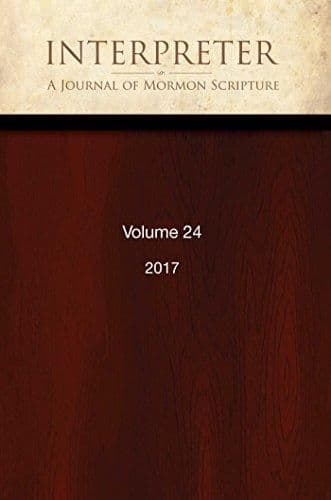Journal
Reflections of Urim: Hebrew Poetry Sheds Light on the Directors-Interpreters Mystery

Title
Reflections of Urim: Hebrew Poetry Sheds Light on the Directors-Interpreters Mystery
Publication Type
Journal Article
Year of Publication
2015
Authors
Spencer, Stan (Primary)
Journal
Interpreter: A Journal of Latter-day Saint Faith and Scholarship
Pagination
187-207
Volume
14
Abstract
In the early editions of the Book of Mormon, Alma refers to the Nephite interpreters as directors. Because director(s) elsewhere refers to the brass ball that guided Lehi’s family through the wilderness, Alma’s use of the term was apparently considered a mistake, and directors was changed to interpreters for the 1920 edition of the Book of Mormon. There are reasons, however, to believe that Alma’s use of directors was intentional. I present contextual evidence that Alma was actually using the Hebrew word urim, which was later translated into English as directors (for the interpreters) and director (for the brass ball), and biblical evidence that those translations are appropriate. Alma may have called the instruments urim to emphasize their sacred importance. As English prose, Alma’s discussion of these sacred instruments is wordy and at times confusing. As Hebrew poetry built around the word urim, it makes more sense. Alma’s apparent sophisticated use of this word suggests that he had a thorough understanding of the ancient connotations of urim and remarkable talent as a classical Hebrew poet.
Subject Keywords
Bibliographic Citation
Terms of use
Items in the BMC Archive are made publicly available for non-commercial, private use. Inclusion within the BMC Archive does not imply endorsement. Items do not represent the official views of The Church of Jesus Christ of Latter-day Saints or of Book of Mormon Central.